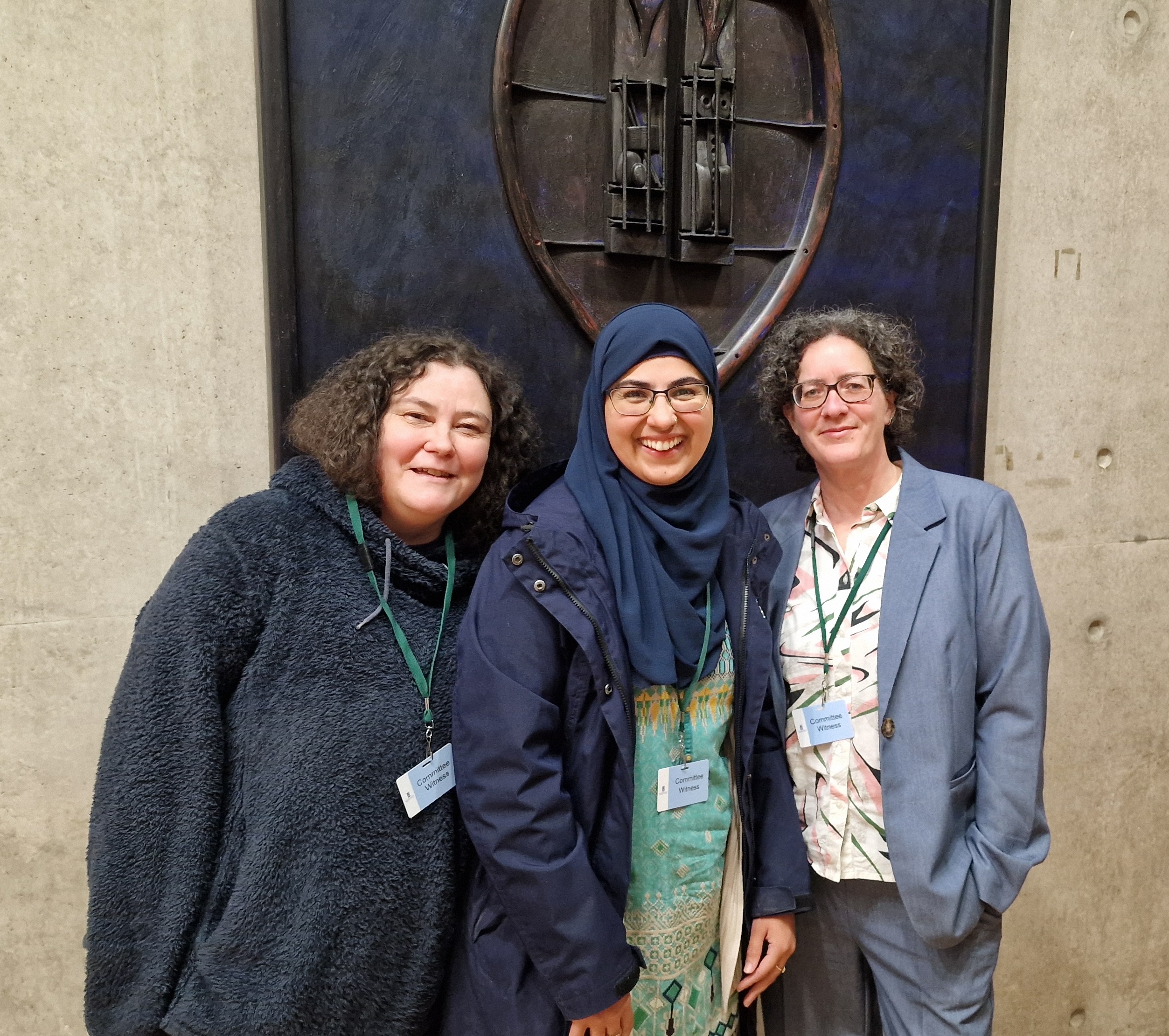SWAN CEO, Lyndsay Macadam, attended the Health, Social Care and Sport Committee at Scottish Parliament last week to give evidence as a witness in the ADHD and Autism Pathways and Support Inquiry
In response to the current crisis around access to assessment and support for neurodivergent people in Scotland, the Health, Social Care and Sport Committee initiated an inquiry in April 2025, which included a public ‘Call for Evidence’ consultation over the summer.
See our previous news item for the background on the purpose and focus of the inquiry and read the summary report of the public consultation on the Scottish Parliament website.
As the next step in the process, the Committee invited representatives from a number of organisations, including SWAN, to give evidence at their meeting on 29th September (you can see the full list of organisation, along with the meeting papers here).

SWAN CEO Lyndsay Macadam, alongside Sofia Farzana, Director of Scottish Ethnic Minority Autistics (SEMA), Kabie Brooks, Chair of Autism Rights Group Highlands (ARGH) and Matthew Day, Manager of the Autism Initiatives One Stop Shop 'Number 6' responded to the MSPs' questions during the second evidence session, which sought to better understand the current situation from the perspective of autistic people's experiences and autistic-led organisations.
Topics included the consequences of lack of access to diagnosis and support, and the positive impact of receiving a diagnosis on mental health and wellbeing; what actions need to be taken to improve access to diagnosis and support, and to achieve a neuro-affirming society in Scotland; training for public sector staff; transitions from child to adult services; and the role of multidisciplinary teams, community-based assessment and the Third Sector in an effective model of good practice for assessments and support.
SWAN CEO Lyndsay Macadam responds to Emma Harper MSP's question on whether current diagnostic pathways meet the needs of neurodivergent women and girls.
The Committee also asked about the importance of using the right language, with Chair of ARGH Kabie Brooks raising the point that the the name of the Inquiry itself refers to ASD (Autistic Spectrum Disorder) - an outdated medical term which frames autism extremely negatively. The Committee welcomed the input of the witnesses and proposed to change the wording from ASD to Autism immediately following the meeting.
You can read more about the session in this short article by HealthandCare.scot or watch the full meeting on Parliament TV.
The Committee will now consider the evidence given as it moves to next steps in the inquiry. Overall the meeting felt constructive, with the Committee being extremely open to understanding the situation from the perspective of autistic-led organisations and the experiences of the people we represent, and shocked by the current situation. Many of the MSPs fed back afterwards that it had been the most useful session they had held.
As we are all aware however, public sector services do not currently have the capacity to meet the need for assessment and support, and positive change will require investment in some form. The representatives from SWAN, SEMA, ARGH and Number 6 all spoke to the importance and value of investing in early intervention, in contrast to the costly consequences of lack of understanding, assessments and support - not only in financial terms, but on the health, wellbeing and quality of life of neurodivergent people in Scotland.
We will keep you informed on what happens next - sign up to our newsletter for updates.
